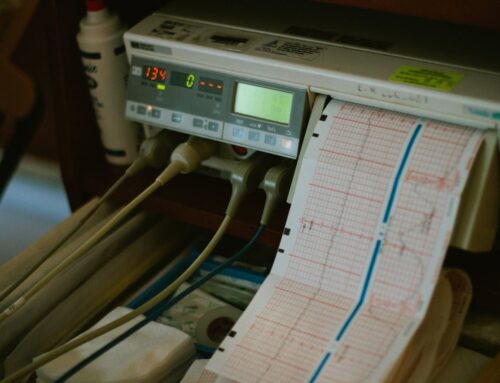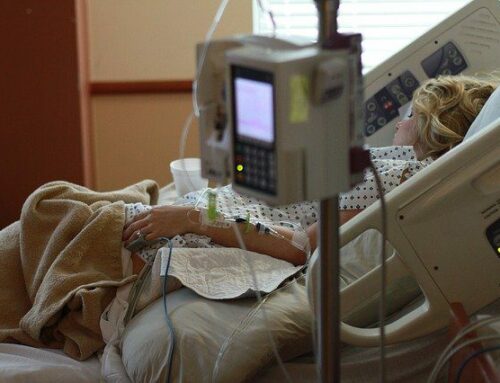A medical negligence action arises when a patient is unhappy with the level of care and treatment they have received from their medical practitioner and/or hospital.
In order to prove a medical negligence action, we must show first of all that an error was made in your care or treatment or an omission and such an error or omission was so gravely wrong that another medical practitioner of equal specialism and training would not have made that mistake. That is what constitutes negligence. Thereafter, we must prove that an injury was suffered, an injury which is over and above the initial medical complaint that you attended the hospital or doctor with, and then we must prove that there is a direct link between the mistake made and the injury suffered and this is what is known as causation.
Statute of Limitations for Medical Negligence Claims in Ireland
The Statute of Limitations is the specific period of time that a patient has to commence proceedings against a doctor and/or hospital. That timeframe is set at two years from the date of the injury or the mistake being made. We feel this is a particularly short period of time, given the length of time that recovery often takes and the fact that the patient feels so aggrieved and that by the time that they come to consider whether they should investigate the matter, a large portion of the Statute of Limitations period can already have expired.
There are some exceptions to the two-year Statute of Limitations.
One of those is the date of knowledge, i.e. if you could not have known that there was a mistake made, the two-year limit will only run from the date that you become specifically aware that there was a mistake made in your care and treatment.
The second exception relates to children, as the two-year Statute of Limitations does not begin to run until the child turns eighteen, in other words, they have right up until the eve of their 20th birthday to bring a case.
A third exception is if the patient is under a disability. What this means is that the patient did not have the intellectual capacity to instruct a solicitor and deal with the case. In those instances, a case can be brought even if the mistake, omission, or injury happened more than two years ago.
Date of Knowledge Rule
The date of knowledge is an exception to the two-year Statute of Limitations. The reason for this exception is that some instances of medical negligence can be very difficult to ascertain. For example, if your doctor failed to diagnose cancer, then you would have no knowledge for years until you were ultimately diagnosed that a mistake was made in the previous instances when it was not diagnosed. Similarly, if during surgery a swab was left inside you, you might have no knowledge of this until it is found and removed, and therefore the date of knowledge exception states that it is from that date when you do become aware that there was a mistake that your two-year Statute of Limitation will begin to run.
This exception states that the Statute will start to run when you as a patient discover or you could have discovered that the injury occurred. This means that if you sought a copy of your medical records and it was obvious from the medical records that a mistake was made, then you would be fixed with knowledge at that date.
Why is it Important to Act Quickly?
Medical negligence actions are difficult and technical cases. The amount of work involved in bringing an action is considerable and requires a lot of investigative work. It is not the same as a road traffic accident where the damage to the vehicle and the injury are very obvious at the outset.
With medical negligence actions, we must obtain all medical records from all of your medical practitioners and investigate all of those records and instruct an expert to review your medical records to ascertain if there was a mistake or an omission made in your treatment or care.
By the time you have recovered and have decided that you wish to investigate the treatment you received, a considerable period of time can already have passed, and this combined with the investigative work that must be undertaken can leave you very close to your two-year Statute date.
Therefore, it is so important that you act quickly if you feel you have been the victim of medical negligence. Once this Statute of Limitations expires, and if you cannot avail of one of the exceptions, then the hospital and/or doctor have an absolute defense to your claim and they can bring an application to dismiss your claim based on the Statute of Limitations.
Furthermore, if the action is not brought in a timely fashion, then recollections can fade, and records may no longer be available, all of which can severely hamper your chances of success in your case.
In conclusion, the Statute of Limitations states that you have two years to bring a medical negligence action from the date of the injury or the date of your knowledge of that injury. These cases are technically very difficult and are very work intensive and so you should act as quickly as you can to instruct a solicitor who has a vast array of experience in this type of litigation who will know exactly what needs to be done to get these type of cases up and running. Failure to act quickly or to investigate the matter at an early stage could hamper your chances of success in your case.
If you believe that you have been a victim of medical negligence, contact our experienced solicitors today on (074) 9175989. or email us at admin@mcelhinneyassociates.com
*In contentious business a Solicitor may not calculate fees or other charges as a percentage or proportion of any award or settlement.
**This information is for guidance purposes only. It does not constitute legal or professional advice. Professional or legal advice should be obtained before taking or refraining from any action as a result of the contents of this publication. No liability is accepted by McElhinney & Associates for any action taken in reliance on the information contained herein. Any and all information is subject to change.













